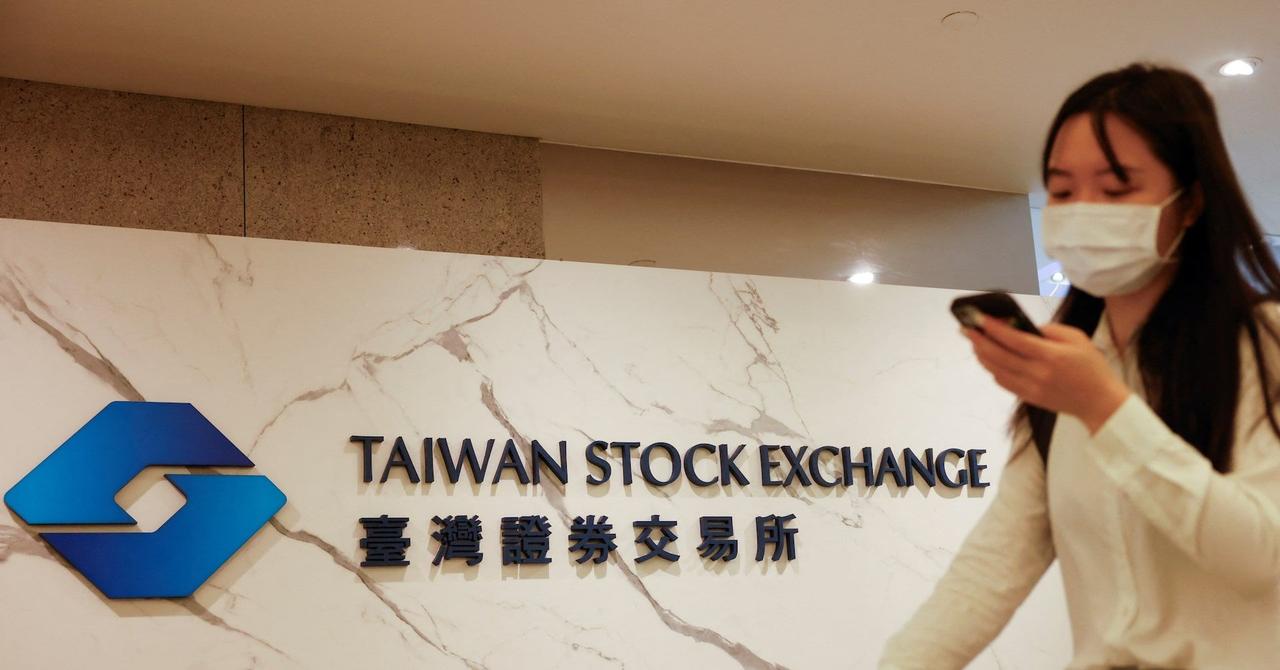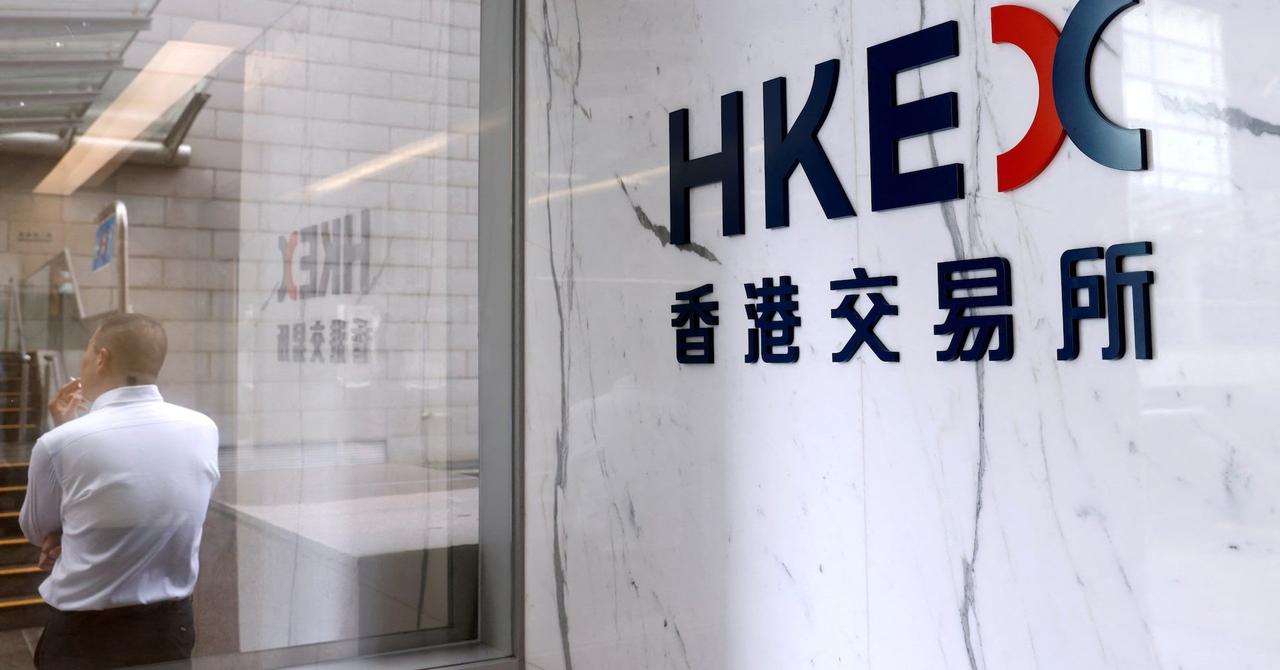Foreign Investors Pour Billions into Asian Stocks, Driven by AI and Growth Prospects
2 Sources
2 Sources
[1]
Foreigners pour billions into Taiwan, South Korea stocks on AI, growth optimism
Aug 6 (Reuters) - Foreign investors flocked to Asian stocks for the third straight month in July, with inflows into Taiwan hitting a near two-decade high and Thailand snapping its nine-month losing streak, buoyed by growth and AI prospects as trade worries fluctuate. Foreign inflows into most Asian equity markets have stabilised over the past three months as countries clinched better trade arrangements with the United States, calming tariff-related volatility and uncertainty in financial markets. Overseas investors showed strong interest in Taiwan and South Korea for the third straight month in July, pouring $7.78 billion in Taiwan, the highest since the 2008 global financial crisis, and $4.52 billion in South Korea, the most since February last year, LSEG data showed. The MSCI gauge of equities in Asia excluding Japan (.MIAPJ0000PUS), opens new tab rose 2% last month, its fifth consecutive month in green, while benchmarks in Taipei (.TWII), opens new tab and Seoul (.KS11), opens new tab advanced roughly 6% each. Taiwan and South Korea were the top destinations in the region for foreign capital, securing a cumulative $25.7 billion over the past three months as the two dominant Asian tech exporters benefit from a global surge in AI-related investments. South Korea's shareholder-friendly reforms, political stability, and robust corporate fundamentals lured investors in 2025 after a dreary performance last year, though recent concerns over reforms to tax policy are posing new challenges. Foreign investors also net bought $499 million worth of Thai equities in July, the first month of inflows since September last year, as they scooped up stocks at relatively cheap valuations after a prolonged period of heavy selling. Even so, Thailand's uncertain political climate, challenging macroeconomic conditions, and an unnecessarily strong currency that undermines export competitiveness continue to impede any buildup of positions on these equities. Thailand's benchmark SET index (.SETI), opens new tab surged 14% in July -- its best month since November 2020 -- but still not enough to erase steep losses suffered earlier in the year. The index remains 10% in the red, ranking among the region's worst performers. "We are cautious and underweight on Thailand as it remains in a fairly precarious position: high household debt, limited government spending, an uncertain political environment, and external negative events such as the conflict with Cambodia," said Kenneth Tang, senior portfolio manager at Nikko Asset Management. "If Thailand can settle these issues, it will clear up the path for its recovery." Indian stocks experienced sharp outflows of over $2 billion in July, the highest since February this year and snapping a three-month streak of net purchases. Indonesia and the Philippines also logged net outflows of $570 million and $29 million, respectively, last month, while Vietnam attracted $326 million as investors bet on the country's strong growth prospects after it secured a comfortable tariff rate with the United States. Reporting by Sameer Manekar and Gaurav Dogra in Bengaluru; Editing by Saad Sayeed Our Standards: The Thomson Reuters Trust Principles., opens new tab
[2]
Foreigners pour billions into Taiwan, South Korea stocks on AI, growth optimism
(Reuters) -Foreign investors flocked to Asian stocks for the third straight month in July, with inflows into Taiwan hitting a near two-decade high and Thailand snapping its nine-month losing streak, buoyed by growth and AI prospects as trade worries fluctuate. Foreign inflows into most Asian equity markets have stabilised over the past three months as countries clinched better trade arrangements with the United States, calming tariff-related volatility and uncertainty in financial markets. Overseas investors showed strong interest in Taiwan and South Korea for the third straight month in July, pouring $7.78 billion in Taiwan, the highest since the 2008 global financial crisis, and $4.52 billion in South Korea, the most since February last year, LSEG data showed. The MSCI gauge of equities in Asia excluding Japan rose 2% last month, its fifth consecutive month in green, while benchmarks in Taipei and Seoul advanced roughly 6% each. Taiwan and South Korea were the top destinations in the region for foreign capital, securing a cumulative $25.7 billion over the past three months as the two dominant Asian tech exporters benefit from a global surge in AI-related investments. South Korea's shareholder-friendly reforms, political stability, and robust corporate fundamentals lured investors in 2025 after a dreary performance last year, though recent concerns over reforms to tax policy are posing new challenges. Foreign investors also net bought $499 million worth of Thai equities in July, the first month of inflows since September last year, as they scooped up stocks at relatively cheap valuations after a prolonged period of heavy selling. Even so, Thailand's uncertain political climate, challenging macroeconomic conditions, and an unnecessarily strong currency that undermines export competitiveness continue to impede any buildup of positions on these equities. Thailand's benchmark SET index surged 14% in July -- its best month since November 2020 -- but still not enough to erase steep losses suffered earlier in the year. The index remains 10% in the red, ranking among the region's worst performers. "We are cautious and underweight on Thailand as it remains in a fairly precarious position: high household debt, limited government spending, an uncertain political environment, and external negative events such as the conflict with Cambodia," said Kenneth Tang, senior portfolio manager at Nikko Asset Management. "If Thailand can settle these issues, it will clear up the path for its recovery." Indian stocks experienced sharp outflows of over $2 billion in July, the highest since February this year and snapping a three-month streak of net purchases. Indonesia and the Philippines also logged net outflows of $570 million and $29 million, respectively, last month, while Vietnam attracted $326 million as investors bet on the country's strong growth prospects after it secured a comfortable tariff rate with the United States. (Reporting by Sameer Manekar and Gaurav Dogra in Bengaluru; Editing by Saad Sayeed)
Share
Share
Copy Link
Foreign investors have shown significant interest in Asian stocks, particularly in Taiwan and South Korea, driven by AI-related investments and growth optimism. This trend comes as trade concerns ease and countries secure better arrangements with the US.
Foreign Investment Surge in Asian Markets
In a significant shift in global investment trends, foreign investors have shown a strong appetite for Asian stocks for the third consecutive month in July. This surge in interest has been particularly notable in Taiwan and South Korea, with inflows reaching levels not seen in nearly two decades
1
2
.Record-Breaking Inflows in Taiwan and South Korea

Source: Reuters
Taiwan witnessed an extraordinary influx of $7.78 billion in foreign investments, marking the highest inflow since the 2008 global financial crisis. Similarly, South Korea attracted $4.52 billion, the largest amount since February 2022
1
. These figures underscore the growing confidence in Asian markets, particularly in the tech sector.AI and Growth Prospects Driving Investment
The primary drivers behind this investment trend are the burgeoning artificial intelligence (AI) sector and overall growth optimism in the region. Taiwan and South Korea, being dominant Asian tech exporters, have benefited significantly from the global surge in AI-related investments. Over the past three months, these two countries have secured a cumulative $25.7 billion in foreign capital
1
2
.Improved Trade Relations Stabilizing Markets
The stabilization of foreign inflows into most Asian equity markets over the past quarter can be attributed to improved trade arrangements with the United States. These new agreements have helped calm tariff-related volatility and uncertainty in financial markets
1
.Thailand's Mixed Fortune
Thailand experienced its first month of positive inflows since September 2022, with foreign investors net buying $499 million worth of Thai equities in July. This shift came as investors took advantage of relatively cheap valuations after a prolonged period of heavy selling
1
2
.However, Thailand's market remains challenged by several factors:
- Uncertain political climate
- Challenging macroeconomic conditions
- A strong currency undermining export competitiveness
Despite a 14% surge in Thailand's benchmark SET index in July - its best month since November 2020 - the index still remains 10% in the red for the year, ranking among the region's worst performers
1
.Related Stories
Other Asian Markets: Mixed Results
While Taiwan, South Korea, and Thailand saw significant inflows, other Asian markets presented a mixed picture:
- India experienced sharp outflows of over $2 billion in July, the highest since February 2023
1
2
. - Indonesia and the Philippines logged net outflows of $570 million and $29 million, respectively
1
2
. - Vietnam attracted $326 million as investors bet on the country's strong growth prospects following a favorable tariff rate agreement with the United States
1
2
.
Future Outlook
The surge in foreign investment in Asian markets, particularly in the tech-heavy economies of Taiwan and South Korea, signals a growing confidence in the region's AI and technology sectors. However, individual country performances vary significantly based on local economic conditions, political stability, and trade relations.
As Kenneth Tang, senior portfolio manager at Nikko Asset Management, notes regarding Thailand, "If Thailand can settle these issues, it will clear up the path for its recovery"
1
. This sentiment could be applied more broadly to other Asian markets facing similar challenges.References
Summarized by
Navi
Related Stories
Foreign Inflows into Asian Equities Slow Sharply in July Amid Tech Sector Slump
07 Aug 2024

AI Disruption Fears Tank US Stocks While Asian Chipmakers Surge 12% on Hardware Demand
13 Feb 2026•Business and Economy

India and Taiwan Challenge China's Dominance in Emerging Market Equity Portfolios
13 Jul 2024

Recent Highlights
1
ByteDance's Seedance 2.0 AI video generator triggers copyright infringement battle with Hollywood
Policy and Regulation

2
Demis Hassabis predicts AGI in 5-8 years, sees new golden era transforming medicine and science
Technology

3
Nvidia and Meta forge massive chip deal as computing power demands reshape AI infrastructure
Technology





